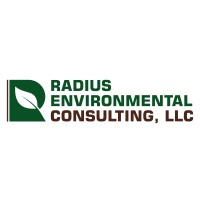
Here are the essential skills required to be successful as a manager for customer success. These are: Customer-focus and resilience. They also include the ability to build customer relationships. There are many job opportunities available for this position. Continue reading for more information.
Skills required for customer success manager
The customer success manager position has grown in popularity in recent years, and more companies are hiring them. This job is different from one company to the next. Some companies specialize in commercial aspects while others are more focused on product knowledge or best practices. These skills will be useful regardless of the job title.
Customer success managers need excellent communication skills. These managers must communicate effectively with customers and departments. It's vital to understand customer needs and advocate for the benefits of a product or service. You'll work with other departments or teams daily and interact with customers.

Resilience
A key component of a successful business is resilience. It helps people make tough decisions, expect the unexpected, and remain calm even when emotions are running high. This ability is essential for customer success teams. Vodafone's study revealed that almost 90% of respondents believed that being resilient was essential for their careers.
Customer Success managers are expected to be resilient as they are responsible in managing the customer experiences and improving them. They must be able and willing to face setbacks and can adapt and pivot to satisfy customer needs. This is especially true for crisis management where teams must perform well despite many challenges.
Building relationships with customers
Customer success managers must be able to build relationships with their customers. This is one of the most important skills they can have. It is crucial to get to know your customers and think strategically. Prospective customers should be contacted on a regular basis by a manager responsible for customer success. You never know when they may be looking for a solution to a problem they are facing. A manager must not only build relationships with customers but also be analytical and resilient. Data from demographics, buying patterns, and behavior will help you understand the best ways to assist customers.
You should be able foster customer relationships and keep them coming back to your business as a manager of customer satisfaction. This can be done by building executive relationships and managing these relationships at scale. Ultimately, this will result in a stronger customer base.

Job openings
As a Customer Success Manager, you will be responsible for ensuring that customers have a pleasant experience. This role is responsible for defining the function of Customer Success, developing processes and best practices, and achieving retention and growth objectives. A Customer Success Manager needs to be meticulous and have a track record for success. You should also have a strong background in working with large, complex organizations. A successful candidate will also be able establish relationships with customers and develop a plan to realize value.
Customers success managers are able to help businesses increase customer retention and sell new features. This can result in increased revenue. They can also enhance the company's image.
FAQ
How do I attract clients to my consultancy business
It is important to identify an area of passion. You could choose anything from public relations to social media, but it should be something you love. You might have to start small, such as by finding niche markets like web design. Once you have found the niche market, you need to understand why it works. What problems does the solution solve? Why should people use this? What can you do to support them?
You can also approach businesses directly.
If all else fails you can offer your services at free events such as conferences or networking nights. This will allow you to meet potential customers without the need for advertising and also allows you to showcase your skills.
How do I choose the right consultant?
There are three major factors you should consider:
-
Experience - How experienced is this consultant? Is she an expert, beginner, intermediate or advanced consultant? Is her resume a proof of her skills and knowledge?
-
Education - What did this person study in school? Did he/she go on to further education after graduation? Can we see evidence of that learning in the way s/he writes?
-
Personality - Do we like this person? Would we like him/her to work with us?
-
These questions can help you determine whether the consultant is right for your needs. If you do not have the answer, it is worth interviewing the candidate to find out more.
Which industries use consultants?
There are many types of consultants. Some consultants are focused on a specific type of business, others may specialize in multiple areas.
While some consultants only work for private companies, others represent large corporations.
Some consultants also work internationally and can help companies around the globe.
What are the advantages of being a consultant?
Consultants can often choose the hours and topics they work on.
This allows you to work wherever and whenever you want.
It also means you can easily change your mind without worrying about losing money.
Finally, you have the ability to control your income levels and establish your own schedule.
Why do you need consultants?
There are many factors that could lead to you hiring consultants.
-
You may have a problem or project that your organization needs to solve.
-
You want to increase your skills and learn something new
-
It is important to work with an expert on a subject area
-
The task is yours alone.
-
You feel overwhelmed by all of the information out there and don't know where to start
-
You don't have the money to pay someone full time
Referrals are the best way for you to find a qualified consultant. Ask your friends and colleagues if they know of any trustworthy consultants. If you already know someone who works as a consultant, ask him/her for recommendations.
Use the "Search People" function to search for consultants in your region if you are interested in using online directories like LinkedIn.
Statistics
- Over 50% of consultants get their first consulting client through a referral from their network. (consultingsuccess.com)
- So, if you help your clients increase their sales by 33%, then use a word like “revolution” instead of “increase.” (consultingsuccess.com)
- On average, your program increases the sales team's performance by 33%. (consultingsuccess.com)
- My 10 years of experience and 6-step program have helped over 20 clients boost their sales by an average of 33% in 6 months. (consultingsuccess.com)
- "From there, I told them my rates were going up 25%, this is the new hourly rate, and every single one of them said 'done, fine.' (nerdwallet.com)
External Links
How To
What does a typical consultant's day look like?
Each type of work will dictate the day's pace. You will be spending time researching, planning new ideas, meeting with clients, and creating reports.
You will have many meetings where clients and you can discuss their issues. These meetings can be conducted over the phone, by email, face-to-face, or online.
Sometimes, you may be asked to create proposals. These are documents that outline your ideas and plans for clients. These proposals will be presented to clients by you and a mentor.
After all the preparation and planning, it's time to actually create some content. This could include writing articles, designing websites or editing photos.
It depends on the project's scope, you might need to do some research to collect relevant statistics. You might need to determine how many customers you have, and whether they buy more than one product.
Once you have collected enough information, it's now time to present the findings to your clients. Your findings may be delivered orally, or written.
You must also follow up with clients following the initial consultation. You can call clients to ask how they are doing or send emails asking for confirmation that your proposal was received.
This process takes time, but it's important to ensure that you stay focused and maintain good relationships with clients.